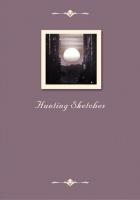It is the same distinction that we find in the characterization of the subject, which stands in immediate relation to the feelings, as a unit, in contrast with the plurality of the objects, to which the sensations are related.
6a. It is only in modern psychology that the terms "sensation" and "feeling" have gained the meanings assigned to them in the definitions above given.
In older psychological literature they were sometimes used indiscriminatingly, sometimes interchanged. Even yet sensations of touch and those from the internal organs are called feelings by physiologists, and the sense of touch itself is known as the "sense of feeling". This corresponds, it is true, to the original significance of the word, where feeling is the same as touching, still, after the very useful differentiation has once been made, a confusion of the two terms should be avoided. Then again, the word "sensation" is used even by psychologists to mean not only ******, but also composite qualities, such as compound clangs and spacial and temporal ideas. But since we have the entirely adequate word "idea" for such compounds, it is more advantageous to limit the word sensation to psychologically ****** sense-qualities. Finally, the term "sensation" has sometimes been restricted so as to mean only those stimulations which come directly from external sense-stimuli. For the psychological attributes of a sensation, however, this circumstance is entirely irrelevant, and therefore such a definition of the term is unjustifiable. The discrimination between sensational and affective elements in any concrete case is very much facilitated by the existence of indifference-zones in the feelings. Then again, from the fact that feelings range between opposites rather than mere differences, it follows that they are much the more variable elements of our immediate experience. This changeable character, which renders it almost impossible to hold an affective state constant in quality and intensity, is the cause of the great difficulties that stand in the way of the exact investigation of feelings.
Sensations are present in all immediate experiences, but feelings may disappear in certain special cases, because of their oscillation through an indifference-zone. Obviously, then, we call, in the case of sensations, abstract from the accompanying feelings, but never vice versa. In this way two false views may easily arise, either that sensations are the causes of feelings, or that feelings are a particular species of sensations.
The first of these opinions is false because affective elements can never be derived from sensations as such, but only from the attitude of the subject, so that under different subjective conditions the same sensation may be accompanied by different feelings. The second is untenable because the two classes of elements are distinguished, on the one hand by the immediate relation of sensations to objects and of feelings to the subject, and on the other by the fact that the former range between maximal differences, the latter between maximal opposites. Because of the objective and subjective factors belonging to all psychical experience, sensations and feelings are to be looked upon as real and equally essential, though everywhere interrelated, elements of psychical phenomena. In this interrelation the sensational elements appear as the more constant; they alone can be isolated through abstraction, by referring them to external objects. It follows, therefore, of necessity that in investigating the attributes of both, we must start with the sensations. Simple sensations, in the consideration of which we abstract from the accompanying affective elements, are called pure sensations . Obviously, we can never speak of "pure feelings" in a similar sense, since ****** feelings can never be thought of apart from the accompanying sensations and combinations of sensations. This fact is directly connected with the second distinguishing characteristic mentioned above (p. 34 sq).















